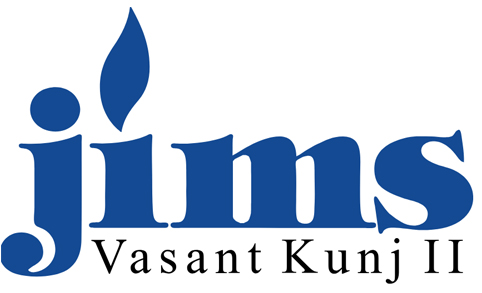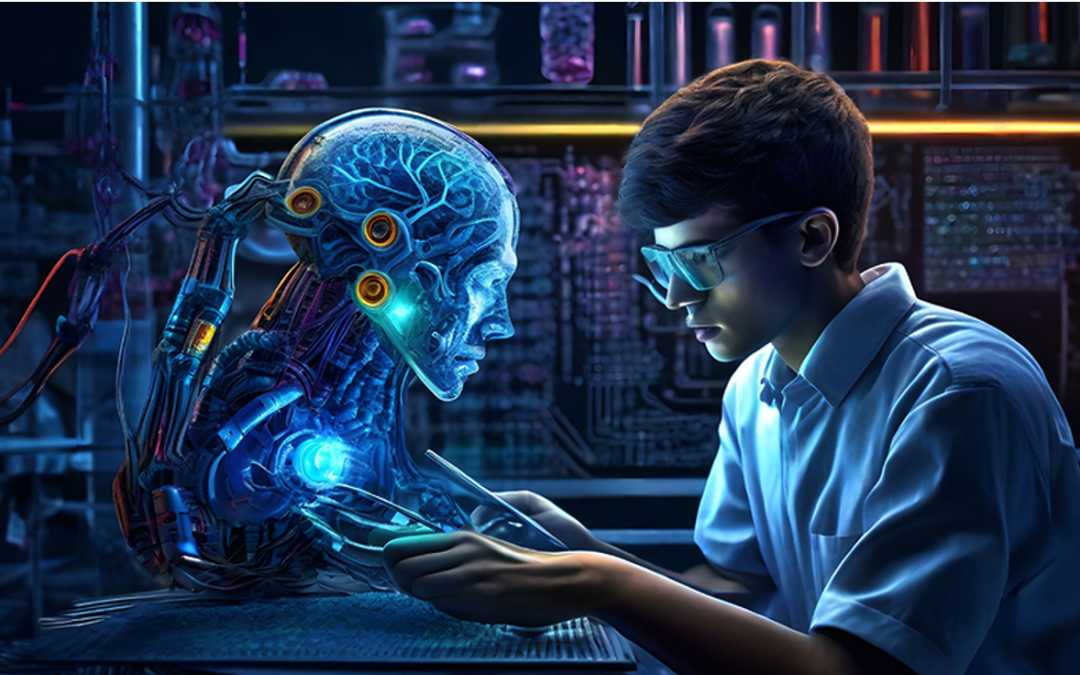As we move toward 2030, the integration of generative AI into the software industry is poised to reshape how we develop and interact with technology. For students enrolled in the Bachelor of Computer Applications (BCA) program at JIMS Vasant Kunj, understanding how these shifts will affect career opportunities, required skills, and qualifications is essential. With AI revolutionizing software development and introducing new job roles, it’s crucial to prepare now for a future where generative AI is at the core of innovation.
In this blog post, we will explore the transformation of the software industry due to generative AI, highlighting emerging job roles, the evolving skills required, and how BCA students at JIMS Vasant Kunj can align their education to thrive in this AI-driven landscape by 2030.
1. The Impact of Generative AI on the Software Industry by 2030
Generative AI refers to AI systems capable of creating new content, whether it’s text, images, code, or even music. Unlike traditional AI systems that simply analyze or classify existing data, generative AI can simulate creativity and innovation, making it a game-changer for various industries, including software development.
By 2030, generative AI will be fully integrated into the software development lifecycle. AI will assist in coding, testing, debugging, and even in generating new software systems. The rapid development of AI models like GPT, DALL·E, and AlphaCode highlights how these tools can already write code, create visual designs, and generate human-like content, pushing the boundaries of what AI can do.
For BCA students at JIMS Vasant Kunj, this means that the future of software development will not be just about writing code manually. Instead, it will involve collaborating with AI tools to design, test, and deploy software more efficiently and creatively.
2. Emerging Job Roles in the AI-Driven Software Industry
As generative AI continues to evolve, new job roles will emerge, and existing roles will undergo significant changes. Below are some of the key positions that BCA students at JIMS Vasant Kunj can aim for in 2030:
- Generative AI Specialist
Generative AI specialists will work on developing and refining AI models capable of generating content and automating tasks. These experts will fine-tune AI systems that create everything from code to creative content.
Key Responsibilities:
- Develop and improve generative AI models (e.g., GANs, GPT, and transformers).
- Optimize AI tools for content generation across various industries.
- Collaborate with data scientists to improve AI outputs based on specific use cases.
- AI Software Engineer
AI software engineers will play a vital role in integrating generative AI capabilities into software products. These professionals will design, build, and maintain AI-powered systems that help automate development processes, optimize software applications, and provide intelligent solutions for end-users.
Key Responsibilities:
- Design AI-powered software solutions and integrations.
- Build scalable systems to deploy and manage AI models.
- Collaborate with cross-functional teams to incorporate AI features into products.
- Data Scientist and AI Researcher
Data scientists with expertise in AI will be critical in analyzing and processing large datasets to train and improve generative models. By 2030, data scientists will work closely with machine learning engineers to fine-tune AI models that generate accurate results and adapt to new data streams.
Key Responsibilities:
- Clean, preprocess, and structure data for AI models.
- Develop predictive models and algorithms.
- Conduct research to advance the state-of-the-art in generative AI techniques.
- AI Product Manager
AI product managers will oversee the development of AI-powered products, from conceptualization to market launch. They will ensure that AI applications meet user needs while adhering to ethical standards. With a deep understanding of AI technologies, they will guide teams in developing and delivering AI-driven solutions.
Key Responsibilities:
- Define product roadmaps and strategies for AI-powered products.
- Work with development teams to implement AI technologies in a user-friendly way.
- Ensure the product meets market demands and complies with ethical standards.
- AI Ethics Specialist
As AI becomes more pervasive, ensuring its ethical deployment will be a critical focus. AI ethics specialists will address concerns such as data privacy, algorithmic bias, transparency, and accountability in AI systems.
Key Responsibilities:
- Develop and enforce ethical guidelines for AI usage.
- Address issues of bias, fairness, and discrimination in AI models.
- Ensure AI compliance with data privacy and security regulations.
3. Skills Required for Careers in Generative AI by 2030
The job roles mentioned above will require BCA students at JIMS Vasant Kunj to develop a diverse set of technical, analytical, and creative skills. The following competencies will be essential:
- Machine Learning and Deep Learning
Understanding core machine learning algorithms, neural networks, and deep learning techniques is foundational. Students should aim to master concepts like supervised and unsupervised learning, reinforcement learning, and transfer learning to work effectively with AI.
- Programming and AI Frameworks
Proficiency in programming languages such as Python, R, and C++ will be critical for implementing AI algorithms. Familiarity with popular AI frameworks like TensorFlow, PyTorch, Keras, and Hugging Face for NLP will be essential for building and deploying AI models.
- Generative AI Techniques
BCA students should learn about specific generative AI techniques such as Generative Adversarial Networks (GANs), Variational Autoencoders (VAEs), and transformer models (e.g., GPT-3). These models are central to the future of AI-driven content generation.
- Natural Language Processing (NLP)
With AI becoming a significant part of language processing (e.g., chatbots, translation services), students will need to gain expertise in NLP. Understanding how models like BERT, GPT, and T5 work and how they are used in real-world applications will be crucial.
- Cloud Computing and Deployment
Cloud platforms like AWS, Microsoft Azure, and Google Cloud will host AI models and applications. Knowledge of cloud-based AI solutions and services (e.g., Google AI, AWS SageMaker) will be essential for building scalable AI-powered applications.
- AI Ethics and Governance
As AI systems take on more decision-making roles, understanding the ethical implications of these systems will be critical. Students should explore courses and research opportunities in AI ethics, fairness, transparency, and bias mitigation.
- Problem-Solving and Creativity
Generative AI isn’t just about writing code—it’s also about leveraging creativity and innovative thinking to solve real-world problems. Students should focus on developing their problem-solving abilities and creative thinking to harness AI’s potential in new ways.
4. Qualifications and Educational Pathways for BCA Students
To equip themselves for the evolving AI-driven software industry, BCA students at JIMS Vasant Kunj will pursue a combination of formal education, certifications, and practical experience. Here’s a roadmap:
- Certifications and Online Courses
Students can complement their education by taking specialized certifications in AI, ML, and data science from platforms like Coursera, edX, and Udacity. These certifications can provide in-depth knowledge of AI tools and frameworks and enhance employability.
- Internships and Practical Experience
Hands-on experience is crucial in the AI field. BCA students should seek internships, projects, or freelance opportunities where they can work on real-world AI applications, whether it’s building AI models, data analysis, or contributing to open-source projects.
- Hackathons and AI Competitions
Participating in AI-focused hackathons or coding competitions can provide valuable experience and allow students to apply their skills in competitive environments. These activities also allow students to network with industry professionals and stay updated on the latest developments in AI.
- Advanced Studies (Master’s)
While a BCA degree provides a solid foundation, further education in specialized fields such as Artificial Intelligence, Data Science, or Machine Learning will be necessary for more advanced roles. Students can consider pursuing a Master’s in AI, Data Science, or related fields after completing their BCA.
5. Conclusion: Preparing for an AI-Driven Future
By 2030, the software industry will be driven by generative AI, with new job roles and skills in demand. BCA students at JIMS Vasant Kunj have a unique opportunity to align their education with the rapidly changing demands of the AI-driven software industry. By mastering technical skills, gaining practical experience, and staying informed about AI advancements, students can position themselves for success in an AI-powered world.
The key to thriving in the future of software development is to embrace the potential of AI, continuously upgrade skills, and explore new opportunities in this exciting field. The next generation of software professionals will be at the forefront of AI-driven innovation, shaping the software industry for years to come.
Blog By: Dr. Poonam Malik
Assistant Professor
Department: Bachelor of Computer Application


Very informative.
#Best BCA college in DELHI NCR
Generative AI is a very popular topic and such a blog is very helpful for best bca college students to have a good understanding of it.
A very informative blog highlighting the future of software industry
Great knowledge
Very informative blog
A highly knowledgeable blog in today’s times for the right learning of AI Concepts.
A very insightful blog piece. Great writeup.
insightful and informative post.